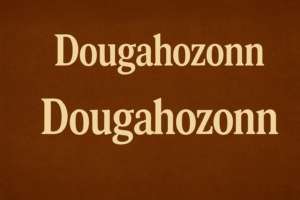Doge Software Licenses Audit HUD
The doge software licenses audit HUD project has attracted headlines by revealing one of the most astounding examples of bureaucratic waste-software licenses that are never used. Pretending to be an analysis of compliance and efficiency, this audit by the Department of Government Efficiency (DOGE) in the Department of Housing and Urban Development (HUD) reveals the detrimental inefficiencies in the manner in which taxpayer funds are being wasted on software assets.
Unveiling the Numbers
Stakeholders became scared when the audit showed a sort of mismanagement that not many of them expected. Some of the software licenses that were not utilized by HUD were found to be costing thousands of dollars- the majority being:
- There were 11,020 licenses of Adobe Acrobats registered and no active user was set.
- A total of 35,855 ServiceNow licenses to three products, including 84 in active use.
- 1,776 Cognos licenses of which only 325 were used.
- 800 WestLaw Classic licenses only 216 were active.
- 10,000 Java licenses, with just 400 users.
The lessons as a learning point are that without controls, agencies can spend a lot of money on digital tools that lie unused, consuming resources without value.
Also read it: Duaction , SSIS 469
Why This Audit Matters
The implication goes further than bloated budgets:
- Monetary Waste: Unutilized licenses are nothing but pure waste–money that can be diverted to more vital housing or community development projects.
- Compliance Risks: Paid software that is not used may complicate the audit of software license and open up agencies to legal or contractual risks.
- Operational Inefficiency: The mismatch between the procurement and actual utilization of the product points out that there are systemic problems with tracking, planning, and governance.
Luckily, the audit has led to action: HUD assured that the task force is currently in the process of inventorying software investments and making efforts to eradicate waste.
Systemic Challenges Behind the Chaos
Why does such wastage keep on happening in government agencies?
- Fragmented Tracking Systems: In the absence of centralized license management, agencies frequently use spreadsheets and old fashioned dashboards to track use, which is not possible in real time.
- Procurement Disconnects: Purchases are made of licenses before it is needed or even when there is no clear knowledge of the current or future needs.
- Vendor Lock-In: Long-term contracts which are not flexible lead to unused or over-used software which will never be used again.
Such barriers are not peculiar to HUD. Same audits involving other federal agencies- such as those that deal with labor, social security and general services- have revealed the same issues and this is an indication of a general trend of inefficiency in the digital age.
How to Address the Problem
Agencies can tighten the software licensing control with several strategies in mind:
- Centralized License Inventory: It is a prerequisite to have a live, detailed database of all software resources available.
- Regular Audits: Quarterly or monthly audits as opposed to annual ones will ensure punctual corrective action.
- Developer and Staff Training: Awareness creation on licensing terms of the agreement and standard operating procedures help to minimize unintentional breaches of compliance.
- Automation and Integration: Intrusion of license scans into the development process and CI/CD pipelines is not disruptive and must be enforced.
- Strategic Vendor Negotiation: Building flexibility into contracts helps agencies balance needs with budget constraints.
Beyond HUD: A Call for Reform
The saga of the doge software licenses audit HUD is not a saga of HUD per se but a mini palis of a bigger governance concern. It highlights the necessity of systematic change in the management of digital assets by the organizations of the public sector.
With real-time insights, better flexibility of contracts, and stronger emphasis on audits, agencies will be able to make sure that every dollar is helping to improve efficiency, security and trust in the agencies.
Conclusion
The doge software licenses audit HUD initiative helps illuminate an urgent problem: mass provisioning of the digital at the cost of the common good. As there are thousands of idle licenses that are not used, the audit has become an action triggering factor.
Through disciplined administration, automation and openness, HUD, and the federal government in general, will be able to recover the value that has been lost, enhance digital stewardship and establish an example of digital responsibility in the digital era.














Post Comment